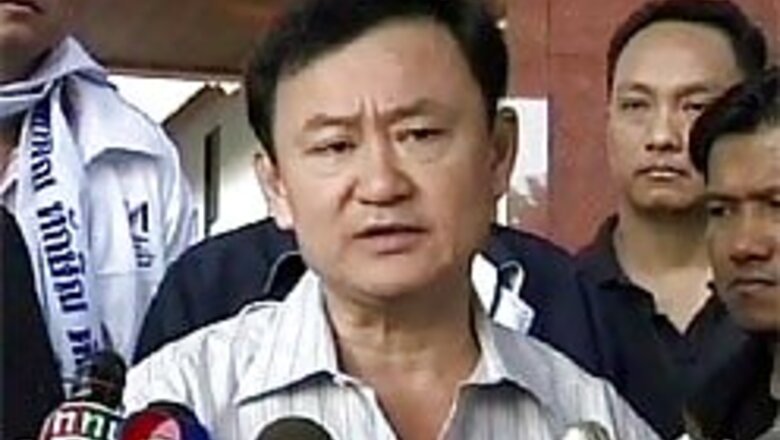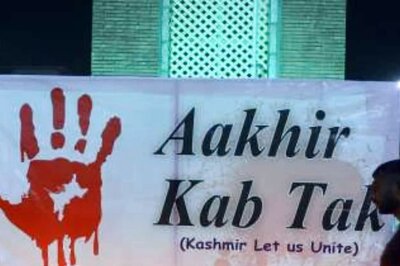
views
New Delhi: For those watching the 9 o' clock bulletin on Tuesday night, the news of a military coup in Thailand came as an unusual news.
The army commander General Sonthi Boonyarataglin staged a coup d'etat and ousted the government of Prime Minister Thaksin Shinawatra. A self-proclaimed Democratic Reform Council assumed control and declared martial law nationwide.
As theories of why and how the coup came about continue to make headlines, for a common man, the news perhaps boils down to two simple issues - will I or won't I be able to take that vacation to Thailand and what about the Indians living there?
While no evacuation has been announced so far, the tourists in the country have been issued a warning about the situation.
An MEA official informs that the situation is being monitored closely and the External Affairs Ministry is in constant touch with our Embassy in Bangkok. "All Indians are safe there," says the official.
A spokesperson for Thomas Cook, a company that organises holiday packages, says: "There have been no cancellations per se. However, we are advising people who are coming to us to postpone their plans by a couple of days. However, there is a little apprehension in the air."
On the ground, the Thais have taken the military takeover on their stride, as if the nation, which has had a long history of similar coup d'état in the past, has learnt to live with it. Over the years, nations like Pakistan, Egypt, Bulgaria, Liberia, China, Turkey and very recently Fiji have seen such upheavals again and again.
In fact, political histories of nations around the world are replete with similar instances, but in various forms.
By definition, a coup d'état (kooh day-tah) or simply a coup means a sudden overthrow of a government by a group of persons in or previously in positions of power.
As Edward Luttwak remarks in his Coup d'État: A Practical Handbook: "A coup consists of the infiltration of a small but critical segment of the state apparatus, which is then used to displace the government from its control of the remainder."
Coups are most common in countries with unstable governments and with little experience of a democracy. It is rare that coups alter a nation's social and economic policies or significantly redistribute power.
A coup is mostly an outcome of political engineering and it may or may not be violent in nature. What differentiates it from a revolution is the fact that it is staged by a larger group of people.
Typically, this active group captures or expels leaders, seizes the administrative reins and controls the means of communication.
Types of coups:
Samuel P Huntington has divided coups into three types:
Breakthrough coups:
In which a revolutionary army overthrows a traditional government and creates a new bureaucratic elite. Breakthrough coups are generally led by non-commissioned officers (NCOs) or junior officers and only happen once. Examples include China in 1911, Egypt in 1952, Greece in 1967, Bulgaria in 1944 and Liberia in 1980 and Thailand in 2006
PAGE_BREAK
Guardian coups:
These coups have been described as musical chairs. The stated aim of this form of coup is to improve public order, efficiency, or to end corruption. There is usually no fundamental shift in the structure of power, and the leaders of these types of coups generally portray their actions as a temporary and unfortunate necessity. One of the early examples of this is the coup by Sulla in 88 BCE which displaced the elected leadership of Marius in Rome. Many nations with guardian coups undergo many shifts between civilian and military governments. Examples include Pakistan, Turkey, and Thailand.
Veto coups:
These coups occur when the army vetoes mass participation and social mobilisation. In these cases the army must confront and suppress large-scale and broad-based opposition and as a result they tend to be repressive and bloody. Examples include Chile in 1973 and Argentina in 1976. An abortive and botched veto coup occurred in Venezuela in 2002.
The origin of coups dates back to the times of Julius Caesar, who orchestrated a civil war. He subsequently became the victim of a coup. Some of the leaders who came to power through coups are -




















Comments
0 comment